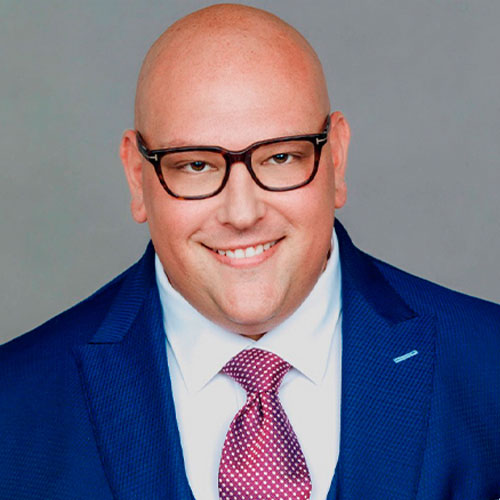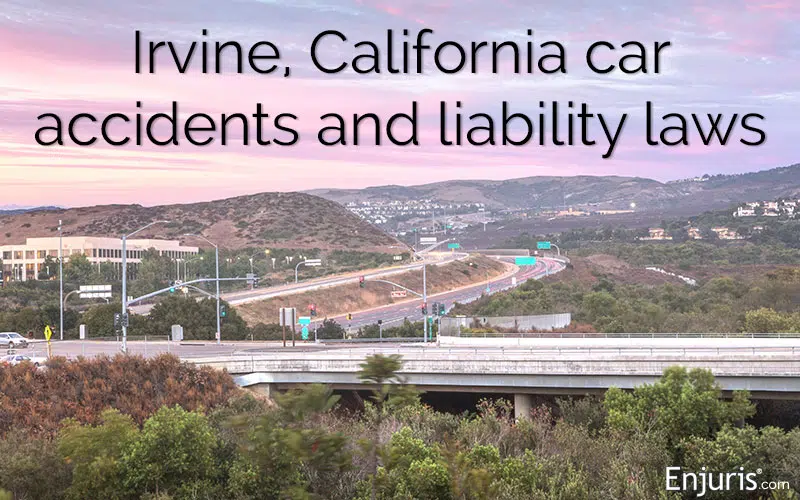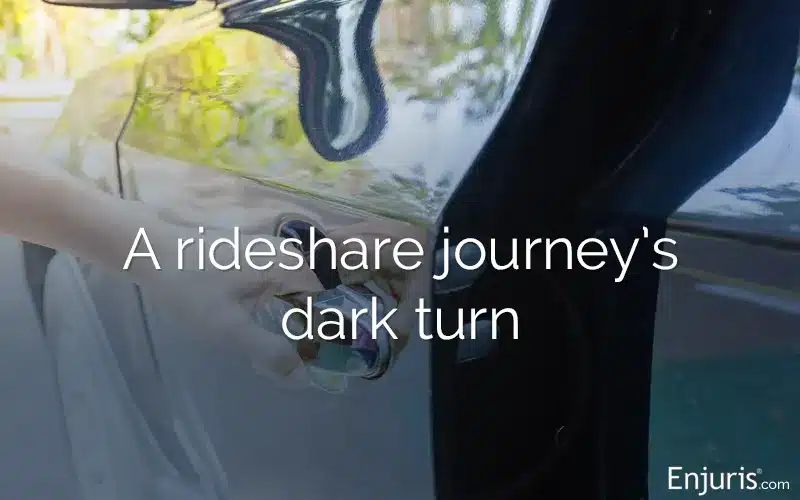
Who can you sue when an Uber or Lyft driver causes a crash?
Los Angeles might be known as the City of Angels, but the City of Uber might be more appropriate.
Since Uber first rolled into town in 2012, the ridesharing industry has exploded. The result is that the taxi industry in Los Angeles has declined 75 percent in the last decade.
Rideshare companies may be popular among consumers, but there's 1 question consumers have had a hard time finding a clear answer to: Who's liable when someone is injured in a crash involving a rideshare vehicle?
How many rideshare companies operate in Los Angeles?
Rideshare companies provide driver-for-hire services to consumers through the use of freelance drivers who use their personal vehicles to transport customers.
Rideshare services operate through a smartphone app. For example, if you want a ride to Dodger Stadium from your apartment on Rio Vista Avenue, all you have to do is open the app, request a ride and wait for your driver to arrive. Once your driver drops you off at your destination, the credit card you stored on the app will automatically be charged.
"I've never taken a taxi," 36-year-old Heather Brandon said moments before she was driven away in an Uber outside of LAX. "Taxis are more expensive, and the Uber app is more convenient."
Interestingly, the Los Angeles City Council approved major overhauls for the taxi industry in 2022 intended to help struggling cab companies compete with Uber and other ridesharing companies. One of the biggest updates is that taxis will have downloadable apps just like ridesharing companies. These apps will also have access to traffic data.
There are a number of rideshare companies in Los Angeles (the list is growing all the time). The most common rideshare companies in LA are:
- Uber
- Lyft
- Carmel
- Blacklane
- RideYellow
- Wingz
- HopSkipDrive
- Kango
Proving fault in a Los Angeles rideshare accident
California has a fault-based insurance system. This means that whoever is at fault for an accident is responsible for paying all of the damages that result from the accident.
To prove that someone was at fault for a car accident, you typically have to prove the 3 elements of negligence:
- The defendant owed a duty of care. All drivers have a duty to exercise reasonable care to avoid harming others on the road. What's more, there is some case law that suggests rideshare drivers owe a heightened duty of care.
- The defendant breached their duty. Common examples of a breach include running a red light or driving while intoxicated.
- The plaintiff suffered an injury as a result of the defendant's breach. You must prove that your damages were caused by the defendant's breach.
Can a Los Angeles rideshare company be held vicariously liable for the negligent actions of its drivers?
Under California's respondeat superior laws, an employer is generally liable for its employee's negligence. In a rideshare vehicle accident, this would mean the rideshare company could be held responsible for an accident caused by one of its drivers. Historically, rideshare companies have tried to avoid liability for car crashes by claiming their drivers are independent contractors (not employees), and thus, the respondeat superior laws don't apply.
In 2019, a California law (California's Assembly Bill 5) was passed, requiring rideshare companies to classify their drivers as "employees." The result was that rideshare companies could be held vicariously liable for injuries caused by their driver's negligence.
However, in 2020, California Proposition 22 was passed in response to California's Assembly Bill 5. To put it simply, Prop 22 reclassified rideshare drivers as independent contractors. To make matters more confusing, California Superior Court Judge Frank Roesch ruled that Prop 22 was unconstitutional, although it remains in force as appeals are being made.
Whether or not a rideshare company can be held vicariously liable for the negligent actions of its drivers is currently up in the air in Los Angeles. We strongly recommend meeting with an experienced Los Angeles rideshare attorney for the most up-to-date legal information.
Are rideshare drivers required to carry insurance in Los Angeles?
Rideshare drivers in California are required to carry auto insurance at all times when their rideshare app is turned on.
The minimum car insurance required depends on the "period" the driver is in:
When the rideshare app is turned off, the driver's personal insurance is active. During this period, the driver's personal insurance must meet California's minimum auto insurance requirements, which are as follows:
- $15,000 bodily injury coverage per person injured in an accident,
- $30,000 bodily injury coverage per accident, and
- $5,000 property damage coverage per accident.
If the rideshare app is on but the rideshare driver hasn't been paired with a passenger, the driver must carry the following personal auto insurance:
- $50,000 bodily injury liability coverage per person injured in an accident,
- $100,000 bodily injury liability coverage per accident, and
- $25,000 property damage liability coverage per accident.
Once the rideshare driver has been paired with a passenger and the passenger has entered the vehicle, the rideshare company is responsible for providing a $1 million liability insurance policy.
To sum things up, when you're involved in a car accident with a rideshare vehicle, you can make a car insurance claim with the at-fault driver's insurance policy (either their personal policy or the rideshare company's policy) and be reimbursed for your medical expenses and other damages within the policy limits.
Who's liable if I'm attacked by my rideshare driver in Los Angeles?
Unfortunately, rideshare assaults have been on the rise.
If you were attacked by a rideshare driver, you can file a civil lawsuit against the driver. You may also be able to file a lawsuit against the rideshare company under the theory of negligent hiring.
In Los Angeles, rideshare companies can only hire drivers who meet certain requirements. Some of the more notable requirements include:
- The driver must have a valid California driver's license.
- The driver must have at least 1 year of driving experience.
- The driver must be at least 25 years old.
- The driver must pass a driver screening check (which includes a review of the driver's driving history and a criminal background check).
- The driver must carry valid California insurance.
The elements that must be proven in a negligent hiring lawsuit typically include the following:
- The driver was unfit or incompetent to perform the work for which they were hired;
- The rideshare company knew or should have known that the driver was unfit or incompetent and that it created a particular risk of harm to others;
- The driver's unfitness or incompetence harmed the plaintiff; and
- The driver's negligence in hiring, supervising or retaining the driver was a substantial factor in causing the plaintiff's harm.
The lawsuit also alleged that Uber failed to uncover a driver's assault conviction during a driver screening check.
The presiding judge in the case stated that "assaults of this nature are exactly why customers would expect companies to perform background checks of their drivers."
The lawsuit was ultimately settled for an undisclosed amount.
What damages are available in a Los Angeles rideshare accident?
In a personal injury lawsuit based on a rideshare accident in Los Angeles, you can recover both economic and non-economic damages:
Economic damages are determined by actual costs that compensate the plaintiff for expenses they incurred as a result of the accident, including:
- Medical treatment
- Prescription medications
- Medical or assistive devices
- Rehabilitation or therapy
- Property damage
- Lost wages or future earnings
Non-economic damages don't have a specific dollar value. These could include:
- Pain and suffering
- Loss of enjoyment of life or activities
- Loss of consortium
- Emotional distress
How to find a Los Angeles car accident attorney
California rideshare laws are constantly evolving. As rideshare companies become more popular and the laws become more nuanced, you'll need an attorney who has experience handling rideshare accident lawsuits.
To put it simply, a regular old car accident attorney isn't good enough when your accident involves a rideshare company.

Brett Sachs is an experienced rideshare car accident attorney who has years of experience litigating rideshare accidents in the greater Los Angeles area.
New Details Emerge in Controversial Lyft Passenger Lawsuit
Explore the legal ramifications of a San Francisco Lyft driver's alleged misconduct. Stay informed about rideshare liability.


